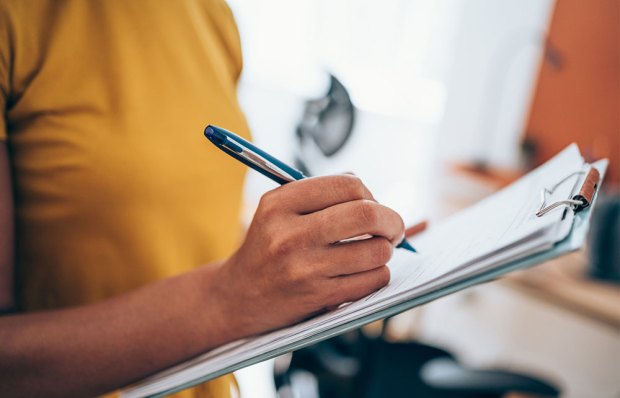We can suffer a lethal pandemic with lockdowns, petrol shortages and supermarket shelves almost entirely denuded of sausages. But when Facebook and its various ahellspawn offspring go down for seven hours, the country is sent into a tailspin of misery and confusion.
On Monday, Facebook users could be seen out on the streets of our towns and cities accosting strangers and explaining to them exactly what they had for supper the night before, or showing photographs of themselves with a couple of friends enjoying a night out in a pub in Ruabon. All they wanted, these people, was a thumbs up from those strangers, or a warm hug or a kiss. But many of the people they approached were unfamiliar with the mechanisms Facebook has employed to give succour to the needy and the deranged, and merely looked bewildered and slightly frightened by these advances. God only knows what the mental health implications will be.
Meanwhile, people who had demonstrated on Facebook that they were the country’s foremost experts in European Union law (2016-18), blockchaining (2018-19), virology (2020), epidemiology (early 2021) and energy prices (mid 2021) were now reduced to shouting their maniacal gibberish at passers-by without recourse to memes or gifs or links to little-known American websites run by a man called ‘Bubba’ who stores weedkiller in his basement. For all of these people, it came as a shattering blow to discover that nobody, anywhere, was remotely interested in anything they had to say about anything and just wished to be left alone to go about their day.
Facebook is bad enough, but heaven help us if Twitter is similarly discombobulated by the incompetence of its technicians. At least 100,000 British people will self-immolate, and Owen Jones’s head will explode, while the Labour party will suddenly realise that it does not have the support of 80 per cent of the British over the question as to whether women have cervixes, but a meagre 15 per cent instead, all of them on Twitter.
The Facebook meltdown occurred during the first full day of the Conservative party conference, in which our government advanced the notion that the petrol crisis was simply part of a cunning plan intended to make everybody immeasurably richer. On the Tuesday, the excellent Home Secretary Priti Patel was inundated with questions regarding what she was going to do about middle-class drug users, this apparently being the biggest issue our country faces. It was at this point that my ears pricked up, hearing yet another example of the way in which the left believes the laws of this country should be enacted. By and large, the left believes nobody should be imprisoned for anything unless they are racist, have committed a crime against a woman, or are well off. In those last three cases, throw the book at them.
Sadly this view, with all its predictable self-contradictions, is now actually predominant in our judicial system. For years the left has argued — successfully, I’m afraid — that drug users shouldn’t be penalised; instead it is the dealers who should feel the wrath of the law. But now that it has emerged that metropolitan middle-class people shove pounds of gak up their noses, the left has changed its tune. No longer is it the largely foreign (in London) gangs which control our drug trade and spend their evenings off shooting rival dealers who should be the focus of our attention, but affluent people who buttress their fragile egos by doing a line of coke every five minutes. Ergo, drug users who are poor are not to blame. Drug users who are well off are to blame.
I always reckoned that the contrasting approaches taken to narcotics and prostitution was evidence of the growing politicisation of our judiciary, and this latest development strengthens my case, I think. When it comes to drugs, it was never the demand that caused the problem, it was the supply — the sellers, hence the left demanding decriminalisation and no prosecutions for users.
With prostitution it was the other way around. The poor, exploited ‘sex worker’ should not be penalised, goes the mantra, rather the exploitative men who hire prostitutes. With prostitution, it is not the supply but the demand. The CPS makes this very clear in its guidance upon prosecuting in this sweet little eulogy to our community of prostitutes. ‘The context is frequently one of abuse of power, used by those that incite and control prostitution — the majority of whom are men — to control the sellers of sex — the majority of whom are women. However CPS recognises that these offences can be targeted at all victims, regardless of gender.’
If you are a woman, then, you are pretty much absolved from any allegation of wrongdoing, no matter what you do, simply for reasons of political ideology. There are plenty of lefties who will argue that women should never, ever, be sentenced to prison, largely because their supposed crimes are the consequence of oppression. It is true, of course, that women commit far fewer offences than men and very few indeed when it comes to crimes of violence.
Increasingly it seems that one’s membership of a certain tribe will determine the manner in which you are treated by the judiciary. You might argue that this has always been the case, simply that the tribes have changed position according to political ideology. But are we absolutely sure that it is the middle classes primarily that keep the narcotics trade alive? And if we are convinced, as the courts seem to be, that the users should not bear the brunt of our wrath, then it seems perverse to make an exception for some of them simply because they own their own house and work for the BBC.
Now that Facebook is back up and running, I must see what my ‘friends’ think of this analysis. Uptick and a hug please.
Got something to add? Join the discussion and comment below.
Get 10 issues for just $10
Subscribe to The Spectator Australia today for the next 10 magazine issues, plus full online access, for just $10.
You might disagree with half of it, but you’ll enjoy reading all of it. Try your first month for free, then just $2 a week for the remainder of your first year.















Comments
Don't miss out
Join the conversation with other Spectator Australia readers. Subscribe to leave a comment.
SUBSCRIBEAlready a subscriber? Log in